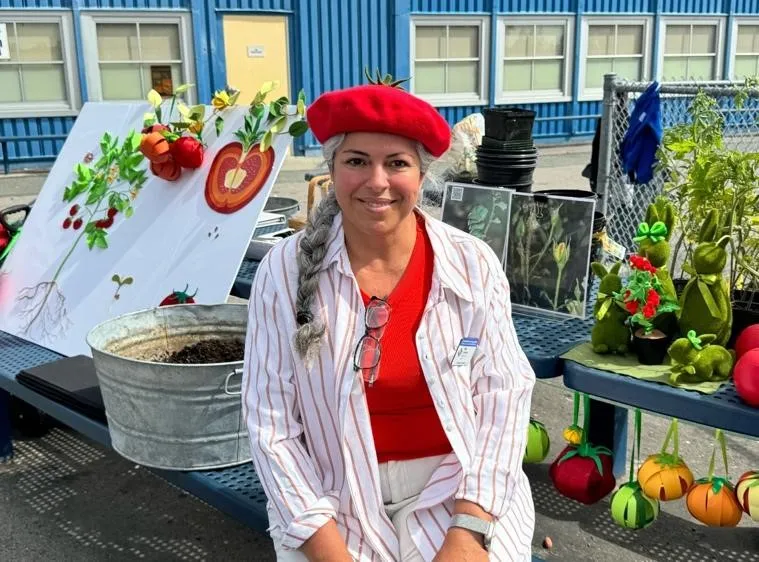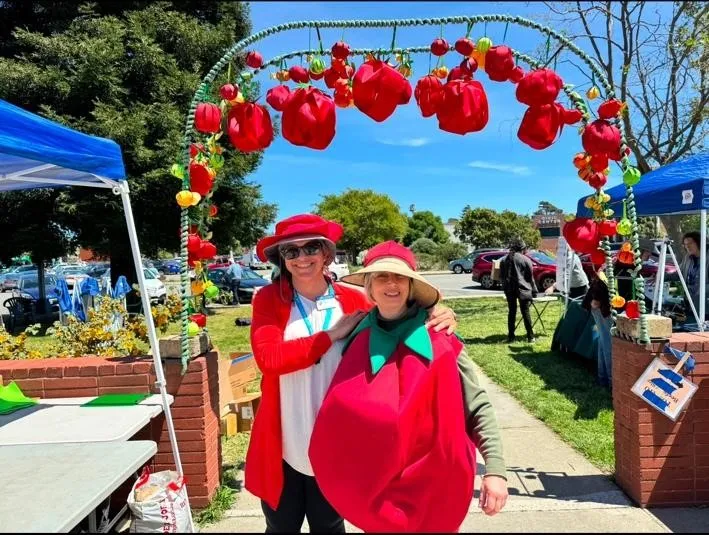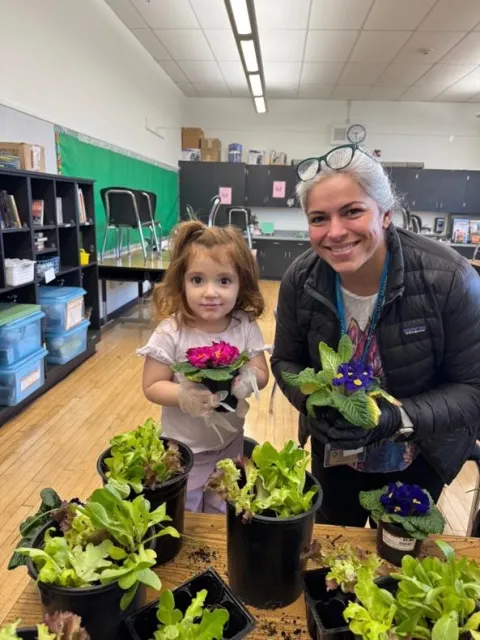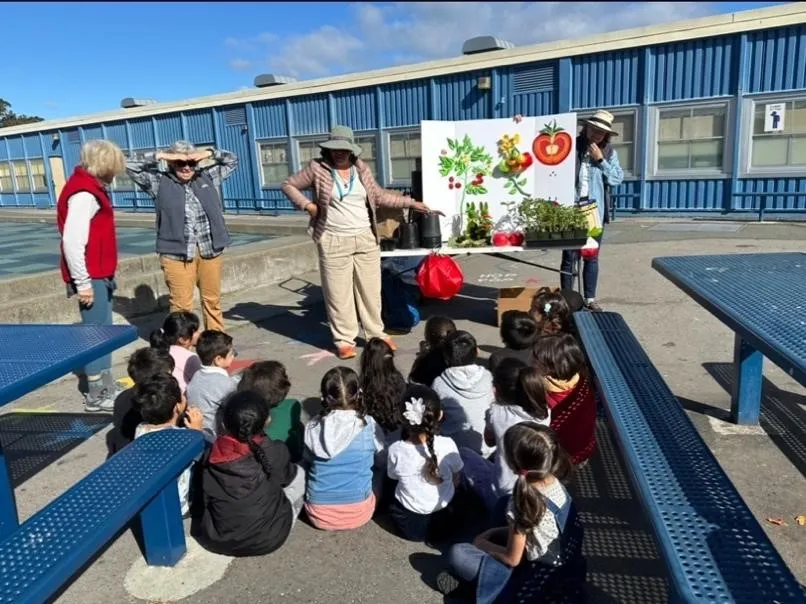Connecting with Underserved Communities
An Interview with May Coleman
by David George

Can you first tell us about your background leading up to your certification?
“Yes, I was born into a diplomatic family in Brazil. We moved frequently, so I was exposed at an early age to many different cultures and people worldwide. I deeply appreciated the strengths of different cultures and customs and how their communities get along. My BA and Master’s degrees in clinical psychology were from the University of Brasilia. After moving to San Francisco, I also earned a degree in molecular gastronomy from the Le Cordon Bleu school before it closed. This education allowed me to cater special nutrition to people with special dietary needs, such as those suffering from severe food allergies, celiac disease, thyroid issues, cancer, and others.”
As I understand it, you are still providing special nutrition recipes and meals.
“Yes, but I also love to garden, so I applied to become a UC Master Gardener volunteer and was certified last March. I volunteered over 1,500 hours to the program this past year, some with the Richmond Dry and Conservation Gardens, some staffing Ask A Master Gardener booths, Growing Gardeners, the Great Tomato Plant Sale, and this year’s New Volunteer Training and Help Desk coverage. But most of my efforts have gone into Community Gardens, General Equipment and Materials (GEM), which I now co-lead, and the new Jardineros project, which I also co-lead.”
That’s a lot! Tell us more about the new Jardineros project.

Do you have examples of these new goals in action?
“I have an interesting story of how these connections with the communities work. I was staffing an AAMG booth last spring when a cute kid named Miguel approached our bug display. He was fascinated by the plastic figures. I engaged him in a conversation in Spanish, and eventually, he said, ‘Maybe I will be a Master Gardener someday.’ I replied that he might even grow up to be a doctor who studies bugs – you know, an entomologist. He said, ‘Yeah, I know!’ (she laughs) While we were talking, I noticed a family member listening nearby. It turns out that it was Miguel’s aunt, an educator working in several Hispanic schools in Contra Costa. She invited me to speak at several of those schools, sometimes in front of hundreds of students. She said the presentations were inspiring and demonstrated how the students can find belonging in the broader community when they grow up. We are fortunate to live in a bubble of diversity in the Bay Area. But it will be tough for these communities over the coming years. Any help we can provide will be worth it.”

That’s truly an inspiring account of how UC Master Gardeners can make a difference in underserved communities. What have been some roadblocks you’ve encountered so far?
“For Jardineros and GEM, there have been budget and documentation issues. These projects are designed to work hand-in-hand with the other projects, so coordination and communication are key. Jardineros needed the development of a structure that would handle multiple planned events at once. Formal education in 2024 was delivered at the Pueblos del Sol Addiction Treatment Center, which needed 25-35 hours of preparation and delivery continuously for some weeks. However, smaller sessions were also delivered, and working with the Contra Costa nutrition program took time. In Growing Gardeners, a mini book on how to start a garden needs to be written and expanded. Fortunately, these efforts have been staffed by some incredible CoCoMG volunteers, such as Karen Maggio, Anne Sutherland, Darlene DeRose, Laura Brainin-Rodriguez, and many others in the program, with awesome support from Dawn Kooyumjian and Diana Garcia-Colmenarez.
What advice would you like to share with new UC Master Gardeners like yourself?

Thanks, May, for your insight into underserved communities and how to connect with them, your selfless volunteering, and your great ideas. 2025 will present many more opportunities for us all.
